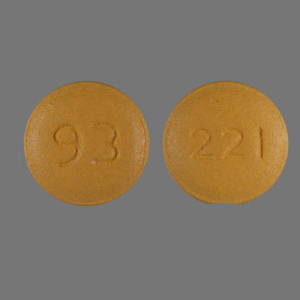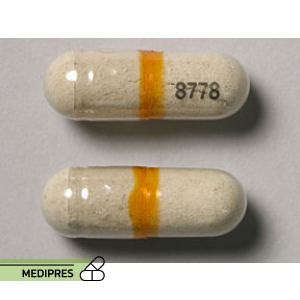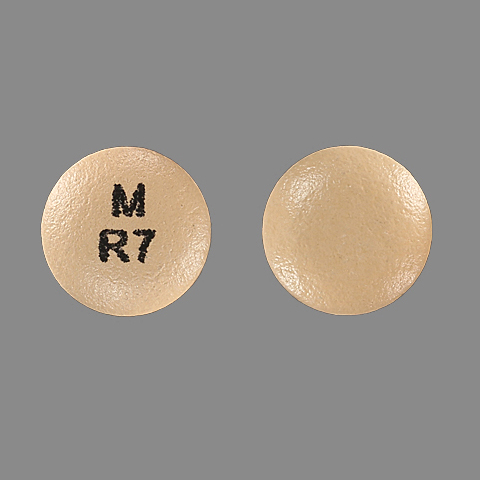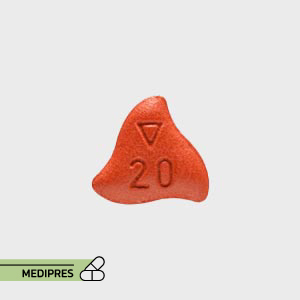
Rinvoq
23 June, 2023
Rivaroxaban
23 June, 2023Risperidone
Generic name: Risperidone
Drug class: Atypical antipsychotics
Dosage forms: Tablet, Solution
Root of administration: Oral
Dose: 1mg/ml, 2 mg
Mechanism of action: Risperidone is an antipsychotic medicine that works by changing the effects of chemicals in the brain.
Drug usage cases: Risperidone is used to treat schizophrenia in adults and children who are at least 13 years old. Risperidone is also used to treat symptoms of bipolar disorder (manic depression) in adults and children who are at least 10 years old. Risperidone is also used to treat symptoms of irritability in autistic children who are 5 to 16 years old.
Drug contraindications: You should not use risperidone if you are allergic to it. Risperidone may increase the risk of death in older adults with dementia-related psychosis and is not approved for this use. To make sure this medicine is safe for you, tell your doctor if you have ever had:
heart disease, high blood pressure, heart rhythm problems, stroke or heart attack; diabetes (or risk factors such as obesity or family history of diabetes); low white blood cell (WBC) counts; liver or kidney disease; seizures; breast cancer; low bone mineral density; trouble swallowing; Parkinson’s disease; or if you are dehydrated. The risperidone orally disintegrating tablet may contain phenylalanine. Tell your doctor if you have phenylketonuria (PKU). Do not give this medicine to a child without a doctor’s advice.
Side effects: Get emergency medical help if you have signs of an allergic reaction to risperidone: hives; difficulty breathing; swelling of your face, lips, tongue, or throat. Call your doctor at once if you have:
uncontrolled muscle movements in your face (chewing, lip smacking, frowning, tongue movement, blinking or eye movement); breast swelling or tenderness (in men or women), nipple discharge, impotence, lack of interest in sex, missed menstrual periods; severe nervous system reaction – very stiff (rigid) muscles, high fever, sweating, confusion, fast or uneven heartbeats, tremors, feeling like you might pass out; low white blood cells – sudden weakness or ill feeling, fever, chills, sore throat, mouth sores, red or swollen gums, trouble swallowing, skin sores, cold or flu symptoms, cough, trouble breathing; low levels of platelets in your blood – easy bruising, unusual bleeding (nose, mouth, vagina, or rectum), purple or red pinpoint spots under your skin; high blood sugar – increased thirst, increased urination, dry mouth, fruity breath odor; or penis erection that is painful or lasts 4 hours or longer.
Warnings: Risperidone is not approved for use in older adults with dementia-related psychosis. Do not give risperidone to a child without a doctor’s advice. While you are taking this medicine, you may be more sensitive to temperature extremes such as very hot or cold conditions. Avoid getting too cold, or becoming overheated or dehydrated. Drink plenty of fluids, especially in hot weather and during exercise. It is easier to become dangerously overheated and dehydrated while you are taking this medication. Risperidone may impair your thinking or reactions. Be careful if you drive or do anything that requires you to be alert. Drinking alcohol can increase certain side effects of this medicine. Stop using this medicine and call your doctor at once if you have a fever, stiff muscles, confusion, sweating, fast or uneven heartbeats, restless muscle movements in your face or neck, tremors (uncontrolled shaking), trouble swallowing, feeling light-headed, or fainting.
Use during pregnancy or breastfeeding: Taking antipsychotic medication during the last 3 months of pregnancy may cause problems in the newborn, such as withdrawal symptoms, breathing problems, feeding problems, fussiness, tremors, and limp or stiff muscles. However, you may have withdrawal symptoms or other problems if you stop taking your medicine during pregnancy. If you become pregnant while taking risperidone, do not stop taking it without your doctor’s advice. If you are pregnant, your name may be listed on a pregnancy registry to track the effects of risperidone on the baby. This medicine may temporarily affect fertility (the ability to have children) in women. Risperidone can pass into breast milk and may cause side effects in the baby. If you breastfeed while using this medicine, tell your doctor if the baby has symptoms such as drowsiness, tremors, or involuntary muscle movements.



